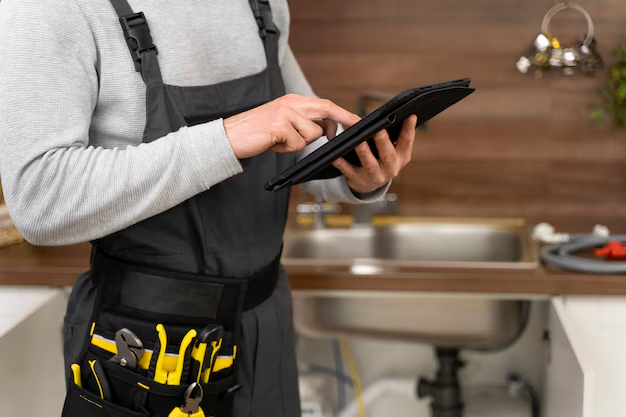Understanding the Refrigerator Compressor: How Long Should It Run?
Refrigerators are indispensable in the modern home, serving as the critical line of defense in food preservation. Yet, many people notice that their refrigerator compressors seem to be running more frequently than expected, leading to questions and concerns about efficiency and functionality. How long should a refrigerator compressor run, and what factors influence its operation? Let's delve into this topic, considering practical insights for optimal food storage and energy efficiency.
📌 Why the Compressor's Runtime Matters
The compressor is the heart of your refrigerator, doing the heavy lifting to keep your perishables cool and fresh. Its performance directly impacts:
- Energy Consumption: A continuously running compressor can drive up electricity bills.
- Food Preservation: Inefficient cooling affects the shelf life of refrigerated items.
- Appliance Longevity: Prolonged operation may indicate potential issues, leading to wear and potential damage to the fridge.
Understanding the optimal runtime and addressing any anomalies ensures your refrigerator functions efficiently, saving money and reducing environmental impact.
📊 Typical Compressor Operation
How Long Is Normal?
A well-functioning refrigerator compressor should not run continuously but rather cycle on and off throughout the day. Here are some general patterns:
- Normal Cycling: Compressors may typically run for about 90 to 120 minutes at a time, depending on the model and environmental conditions.
- Activity Frequency: Over a 24-hour period, the compressor can run approximately 8 to 10 hours, equating to about one-third of the day.
These estimates can vary based on many factors, such as the model's age, efficiency rating, and environmental conditions.
📋 Factors Influencing Compressor Runtime
1. Refrigerator Load and Usage
- Filled vs. Empty: A well-stocked fridge retains cold better and reduces compressor workload as opposed to an empty one.
- Door Usage: Frequent opening of the fridge door lets warm air in, increasing the compressor's effort to restore optimal temperature.
2. Ambient Temperature
- Room Conditions: In hot and humid conditions, the compressor works overtime to maintain the set temperature, especially if the fridge is in an unventilated area.
- Placement: Fridges near heat sources or without sufficient airflow around them may see increased compressor activity.
3. Thermostat Settings
- Temperature Settings: Lower temperatures require the compressor to work harder and longer.
- Faulty Thermostats: A malfunctioning or inaccurate thermostat can cause constant compressor running.
🔧 Troubleshooting Excessive Compressor Runs
If your compressor is running longer than typical patterns, it might be time to troubleshoot:
📦 Check the Load
Make sure your fridge is neither overfilled nor underfilled. An optimal load improves cooling efficiency.
🚪 Monitor Door Seals
Ensure door gaskets are clean and sealing properly. Replace worn-out seals to prevent cold air seepage.
📏 Adjust Thermostat Settings
Consider setting the thermostat to medium and ensuring it registers correctly against a thermometer. Keeping your fridge between 37°F (3°C) and 40°F (4°C) is generally recommended for optimal food safety and efficiency.
🧊 Defrost the Freezer
If your freezer compartment is frost-ridden, defrosting might be necessary. Ice buildup can hinder airflow, forcing the compressor to run longer to maintain temperatures.
🌿 Energy Efficiency Considerations
To minimize energy consumption and optimize the function of your fridge:
- Positioning: Place the refrigerator in cooler spots away from direct sunlight or heat sources.
- Routine Maintenance: Clean condenser coils annually to ensure air can circulate freely and heat dissipates efficiently.
- Prompt Repairs: Address symptoms of compressor or refrigerator anomalies swiftly to prevent escalated issues.
📒 Summary: Keeping Your Fridge Running Smoothly
Here's a handy checklist to ensure your refrigerator is running optimally, minimizing unnecessary compressor work:
- 🧊 Regularly defrost the freezer 😎
- ⚖️ Maintain proper refrigerator load 📦
- 🚪 Ensure tight door seals 🧲
- 🔄 Allow proper ventilation around the unit 🌬️
- ⚙️ Perform annual maintenance 🛠️
- 🌡️ Check thermostat settings 🔍
🏷 Practical Tips for Extended Refrigerator Life
- Keep open food packages sealed to minimize moisture inside and prevent compressor overwork.
- Group similar items together to streamline cooling recovery after the door is opened.
- Label and date foods to avoid unnecessary rummaging, which adds warm air to the mix.
Final Thought
Maintaining a refrigerator's health is as crucial as its contents' freshness. By understanding and managing your refrigerator compressor's runtime, you not only optimize food storage but also bolster appliance efficiency and longevity. Keep it running smoothly, and your investment in both the appliance and the food it stores remains secure. This conscious approach towards refrigerator management not only impacts utility bills but can also translate to a small yet meaningful eco-conscious effort in your daily routine.

